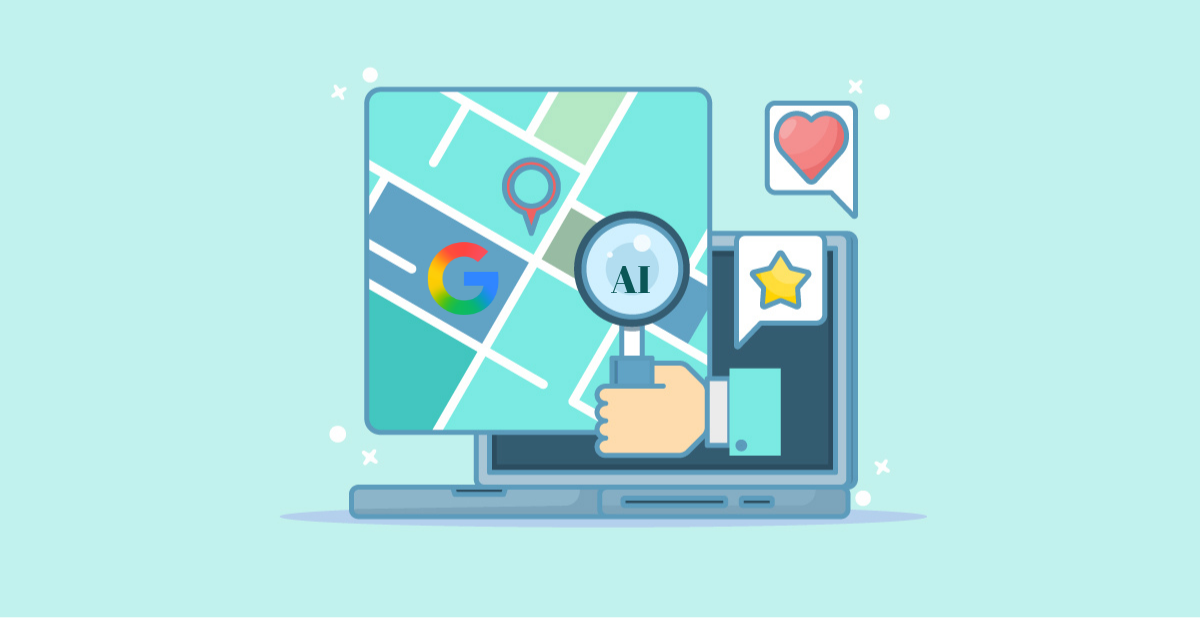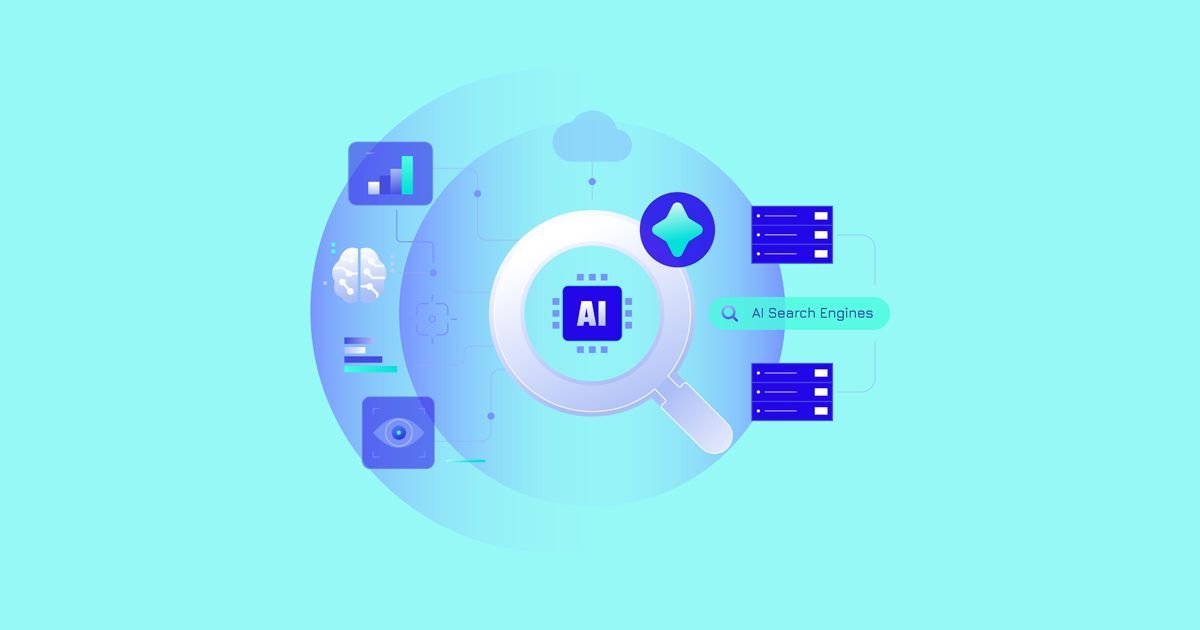Long-Term AI SEO Strategy for Your Business
How to Build an Effective SEO Strategy for Your Business in World of AI
For local businesses like a pizzeria, a roofing service, or a hair salon Search Engine Optimization (SEO) is the key to being found online when customers search for “best pizza in [city]” or “best roofing contractor near me.” In 2025, artificial intelligence (AI) is transforming local SEO, powering smarter search engines and changing how customers discover businesses. This guide offers local business owners a practical, long-term SEO strategy using AI, designed for non-technical users to boost visibility, attract nearby customers, and grow revenue in an AI-driven world.
AI is reshaping local search. Voice assistants like Siri help customers find nearby cafes, while Google’s AI Overviews deliver instant answers tailored to location. Traditional SEO, reliant on basic keywords, no longer cuts it. Search engines now prioritize user intent and context, requiring content that answers specific, local queries.
By leveraging AI tools, local businesses can compete with bigger players, optimize their online presence, and connect with their community.
Understanding AI’s Role in SEO
AI is transforming SEO by changing how search engines understand and present information, making them smarter and more intuitive. Here’s a breakdown for local business owners:
Shift from Keywords to Prompts
Traditionally, SEO was all about keywords—specific words or phrases that users might type into search engines, like “best running shoes 2025.” However, with AI, search engines can now understand the context and intent behind a user’s query, even if it’s phrased differently. For example, users might ask AI chatbots, “I run five miles a day on pavement. What running shoes should I get?” This shift is driven by the rise of AI-driven search experiences, such as ChatGPT, Grok or Google’s AI Overviews, where the average query is longer and more detailed, often comprising 23 words compared to 4.2 words in traditional Google searches.
AI-Driven Search Features
Search engines are integrating AI to provide summarized answers at the top of results, such as Google’s AI Overviews. These summaries compile information from various sources, making it crucial for your content to be comprehensive and relevant enough to be selected. This means your website needs to offer value that AI can pull from, like detailed guides or FAQs, to appear in these summaries.
Longer, More Detailed Queries
Users are asking more specific and detailed questions, especially with AI chatbots. For instance, 70% of ChatGPT queries have “unknown” search intent, meaning they don’t fit traditional categories like informational or transactional searches. This requires content that can address complex needs, such as “How do I choose a roofing service for my historic home?” rather than just “roofing services.”
Local Intent
With 70% of AI chatbot queries having “unknown” intent, customers ask niche questions like “Which salon in [city] does balayage for curly hair?” Your content must address these hyper-local needs. For local businesses, AI-driven SEO means creating content that speaks directly to your neighborhood’s unique demands.
Practical Tips for Local Content Creation
Should I use AI for SEO? Yes, you should consider using AI for SEO, but not as a complete replacement for human expertise and critical thinking. To build a long-term SEO strategy in this AI-driven landscape, focus on the following strategies:
Create In-Depth, High-Quality Content
- Summarize content at the top of a weboage or blog post.
- Tools like ChatGPT or Grok can help brainstorm topics based on your business niche. For example, ask, “What are common questions people have about roofing services?” to get a list of potential blog post ideas.
- Focus on answering detailed questions that your customers might have. For example, if you run a roofing business, write about “How to spot roof leaks” or “What to expect during a roof replacement.” This aligns with the trend of longer, conversational queries and helps your content get picked for AI summaries.
- Use long-tail keywords, which are more specific and less competitive, to target niche audiences. For instance, “roof repair for older homes” is more targeted than “roof repair.”
- Ensure your content is comprehensive, covering all aspects of the topic to provide value.
Optimize for Semantic SEO
What is Semantic SEO? Semantic SEO involves helping search engines understand the
meaning behind your content, not just the keywords.
- Use related terms and concepts to provide context. For example, if you’re writing about “roofing services,” include terms like “shingle repair,” “gutter installation,” or “roof leaks.” This helps search engines see your content as relevant to a broader range of queries.
- To do this, type your target keyword into Google, and it will suggest related words and phrases. Then, incorporate these into your content to improve relevance.
Write for Humans, Not Just Search Engines
- Your primary audience is your customers, so write in a natural, conversational tone that engages them. Use storytelling, examples, and clear explanations to make your content relatable. For instance, share a story about how you helped a customer fix a roof leak to build trust.
- While optimizing for SEO, remember that AI tools like ChatGPT struggle to create deep analysis or original insights, so focus on firsthand experience and value that AI can’t replicate.
Structure Your Content Well
- Use headings, subheadings, bullet points, FAQ, and numbered lists to make your content easy to read and navigate. This helps both readers and search engines understand your content better. For example, structure a blog post with sections like “Signs of Roof Damage,” “Cost Estimates,” and “How We Can Help.”
- This structure also aids AI interpret your content for summaries, improving your chances of appearing in AI Overviews.
Incorporate User Intent
- Understand what your audience is looking for when they land on your page. Are they seeking information, trying to solve a problem, or ready to make a purchase? Tailor your content to meet those needs directly. For example, if someone searches “how to choose a roofing service,” provide a guide with tips and your contact details at the end.
Make Content More AI-Friendly
Content becomes more AI-friendly when it is designed to be easily accessible, understandable, and optimized for AI systems, particularly in the context of search engines, chatbots, and other AI applications. AI tools to improve existing content by suggesting keywords, improving readability, and ensuring your content is optimized for search engines, yet more conversational.
Embracing Voice Search
Voice search is conversational by nature. Tools designed for content optimization can help you create conversational content by suggesting tone adjustments, improving readability, and ensuring your text aligns with how people speak. Read our blog on Voice search optimization.
User-Friendly AI SEO Tools
Here are some user-friendly SEO tools that our agency is currently using:
Ubersuggest is an affordable, user-friendly platform with AI-enhanced tools for keyword research, backlink analysis, and competitor insights. It suggests relevant keywords and content ideas to improve your website’s ranking, perfect for targeting local customers. Its AI features streamline content creation, keyword discovery, and SEO strategy, boosting efficiency and content quality.
A straightforward SEO audit tool that scans your website and provides clear, actionable reports on issues like broken links or missing meta tags. Its simple interface makes it easy for small businesses to improve their site’s performance without technical expertise.
A specialized tool for local SEO, focusing on optimizing your Google Business Profile and tracking local search rankings. Its intuitive dashboard provides insights into your business’s local search performance, helping you connect with nearby customers effectively.
Frase streamlines the creation of conversational, SEO-friendly content to enhance rankings in the highly competitive voice search landscape. By analyzing the top 20 Google results, it identifies relevant topics and questions, suggesting conversational content to address gaps. The platform scores your content against competitors in real-time, recommending keyword and tone adjustments to ensure voice-friendly clarity.
Additionally, Frase.io’s AI generates content briefs, outlines, or drafts incorporating conversational phrases from search engine data, while optimizing keyword use and readability to meet the stringent requirements for securing the top spot in voice search results.
AI SEO is An Ongoing Process
In 2025, building an effective long-term SEO strategy requires embracing the advancements brought by AI. By understanding how AI is changing search engines and user behavior, creating high-quality, in-depth content that answers detailed queries, optimizing for semantic SEO, and leveraging user-friendly AI tools, local business owners can significantly improve their online visibility and attract more customers.
SEO is an ongoing process, so start small, perhaps by optimizing a few key pages or creating a content calendar, and gradually build from there. With persistence and the right tools, you can achieve sustainable growth through SEO.
Remember, the goal is to provide value to your audience while adapting to the technological advancements that shape how people search for information online. Read this great article here.




